Sport
Il mio intervento per EU- Athletes
I am a clinical and sports psychologist and a freelance psychotherapist. I studied in the University of Chieti-Pescara and I specialized in Salesian Pontifical University in Rome. I collaborate with the University of Chieti-Pescara, for the Department of Neuroscience, Imaging and Clinical Sciences. In this Academic year, I am teaching in the final year class. The title of the course is: “Developmental unease in the family context”. As a sports psychologist I deal with individual athletes, coaches and teams.
- What does leadership mean/look like to you?
Before starting with my contribution today, I’d like to thank the organizers who have welcomed my presence here:
I’m happy to take part today in this moment of discussion and growth.
I would also like to make a premise (primis):
I have the idea that my English helps me not on everything.
I find that this public apology is liberating for me, since in response to the interesting questions that have been given to me, I will use important and central words:
like authenticity, limitation, responsibility, error.
In this way I’m asking you to do what a good leader does:
empathize.
This way I carve out a place next to you or, if you prefer, I’ll make you a place next to me.
To make you feel even more comfortable here next to me,
I’m asking you to entrust yourself to my voice for a few seconds and, not to care about my pronunciation,
I’m asking you to close your eyes and think of a moment when you too felt you were in the impasse, poised between the fear of not being enough and the desire to have an experience.
Now I wish you wrote down mentally three useful remedies, in three single words, that you used to get out of this impasse.
I call those rimedies permissions.
I’ll tell you mine, they are the ones I started from for my contribution to the “pro-lead: the leadership of the future” for Giba last May in Bologna.
Courage, altruism, imagination.
These words recall an Italian person of a very famous song by a singer-songwriter that I don’t struggle to call a poet.
Francesco de Gregori catches, just as only an artist can, and much better than a psycologist, the concept of leadership.
Courage, altruism and imagination.
Believe that a leader is the catalyst for a similar process: reaching out to a partner, saying:
“I know what you feel, I know where we need to go and your input is important.”.
And do this with each other.
Through this premise and through this permission, I feel I have gained the freedom and comfort in my position to continue answering questions. In this way I think I have already answered the first question of what leadership means to me.
To complete this definition I get help from Eric Berne, founder of transactional analysis:
“A good leader defines the culture of the group firmly enough to channel without obstructing and exerts just the right degree of severity to control without intimidating”
2- Has there been a light bulb moment in your career when you realised its importance?
In my case, there isn’t a specific moment in my career, in which I understood what to have leadership means. For me, things happened a little at a time and with a lot of effort.
I wasn’t there to train my leadership.
Rather I immersed myself in the world of relationships: of that unique relationship with myself, which we psychologists call intrapsychic and in interpersonal relationships.
I practiced reading in the people I meet the strengths and growth points (what we commonly call weaknesses).
I learned to focus on the aspects and qualities of others, I was able to do so because I learned, through personal work, to focus on my resources and my points of growth, recognizing the limits painfully but also joyfully for the opportunity they hid:
finding myself and discovering myself beyond the error, within my limit.
In my limit I notice a challenge, but also the opportunity to meet the other and to let him or her complete me.
In this I see the concept of courage and altruism I was talking about before and, by doing this, we let our imagination out and our creativity be possible.
3- As subjet experts, how do you feel people best learn and develop their own leadership skills?
In my experience as a freelance therapist and sports psychologist, I have learned that people learn to develop their leadership when they learn to welcome themselves as they are: in authenticity.
Starting from the acceptance of one’s own story, as a biography in which what is there and what is missing can take on meaning, be like a canvas from which to start to broaden the horizon of oneself.
A very dear word dear to the concept of leadership is responsibility.
In its etymology in my language it is the ability to give answers.
Those who know how to give answers manage to stay in reality by looking at their limits and their resources.
Later in my professional growth I also learned that in addition to answering it is important to ask and wonder, it is important to take care of the quality of our questions.
It is important to replace the accusing “Why?” with the preposition “how”, for example, “how do I feel?”or “how do you feel?”.
4- Can you tell us about things that get in the way eg obstacles, to people learning and developing as leaders?
The action that hinders our ability to be leaders is any action that hinders our sociability.
In my epistemology, the sense of leadership is that state in which everyone can freely express their person, their unique personality, it means being free to be themselves.
This freedom is dialogical: that is, it resides in the permission that I give to myself and in the permission that society must give me to be myself.
And we know that the man is a social animal, Aristotle already said this in the fourth century BC.
Thus we come to a new concept: our need for social recognition.
This need is phylogenetically innate.
The studies on children, newborns that we carry out, in the university where I teach, demonstrate how we human beings are born with a brain apparatus predisposed to sociality.
We know that without social recognition we could not survive. Our mirror neurons are able to allow us to imitate from the first moments of life, we are talking about a few hours after birth.
The rudiments of sociality are generated from the imitation of the other who is in front of me. Social recognition is a hunger with which we are born and which does not abandon us throughout our existence.
One obstacle to creating leadership is denying yourself and denying this need. Berne used to say that without caresses you don’t walk with your chest out.
What do I mean by this?
I mean that it is important to offer and to receive to ourselves and to others social recognition.
The person who is unable to mentalize the other is unable to be a recognizable (recognaizbol) leader in today’s world.
5 -We all learn in different ways but experienced based learning is a popular method tanto the moment. Can you give any insights on how you incorporate this into your work?
Experiential methodology is central to someone like me who is a transactional analyst.
I understand together with Robinson learning as a learning support process.
In this perspective, there is no teaching. The teacher is only someone who supports the process of understanding in the other.
I almost always incorporate moments of mental visualization into my practice, like the one just now, I recall lived emotional experiences, because learning is more stable if supported by emotions.
In this sense, the trainee is the main actor in the experience of cultural growth, in this sense it is essential to open one’s teaching to the concept of co-responsibility and co-creation in learning: only in the relationship can we experience the learning.
And the group must participate because it is responsible for its own learning with its own way of being in the classroom and. at the same time. everyone is also responsible for the learning of the others.
And buy declaring this I make this clear when I am the manager of a group session.
The trainer is a catalyst of processes in the group and as such I often invite to have experiences, games, role-playing games, videos, poetreis, thus stimulating curiosity and autonomy in the trainee.
Education is praxis, learning is never detached from practice because in the experience that I sustain my motivation to learn.
6 – Best advice on for teaching leadership effectively?
The best tip for teaching leadership effectively (effectivli) is also the secret to learning leadership effectively.
I mean that in our culture it is important to review our concept of error and defeat.
A good culture of error and defeat is the starting point.
We know that we can fail and thinking about the mistake before it happens often makes us prevent it or makes us welcome it as a natural part of the learning process, of the personal and social development process, of a job, of a task.
By studying communication in infancy and in the first months of life, we know that, for example, when the caregiver and the child do not understand each other, that moment represents the opportunity to find new, more effective strategies for communication: the impasse becomes the place where it is possible to broaden meanings and feel more solid as people and as leaders.
This process is feasible only if I can have that trust that the other, like me, wants to grow and feel welcomed at the same time and in this communication we are in relationship.
- Worst thing a facilitator can do when teaching leadership?
The worst thing a facilitator can do to teach leadership is criticize and we know that criticism often arises from what psychology calls the parallel process of projection.
Probably in the relationship with the individual and with the class, when the teacher begins to criticize a trainee or the whole group, he has already criticized himself first, implicitly (implisitli) and unconsciously: the devaluation of the other generates the over-evaluation self and the devaluation of the self generates the over-evaluation of the other.
In this imbalance it is not possible to achieve that good enough relationship with oneself and with the other from which relationships and learning are generated.
Thank you for your time and the attention.
Ciao, mi chiamo Francesca di Sipio e sono l'ideatrice di questo portale web. Sono una psicologa clinica, psicoterapeuta, analista-transazionale ad approccio integrato, psicologa dello sport. Il mio studio è sul territorio di Chieti-Pescara. Mi trovi sui social, sulla mail ma soprattutto al 3477504713


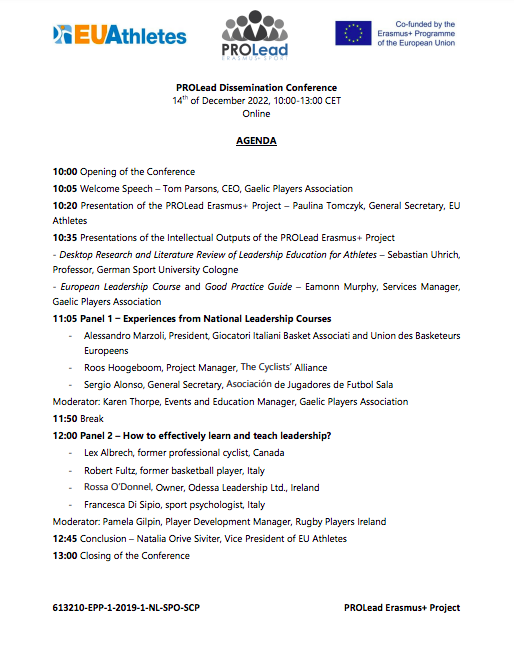






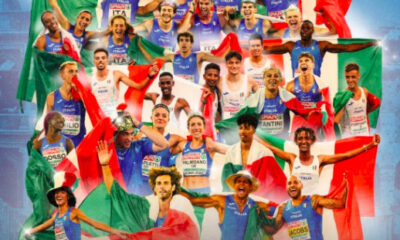




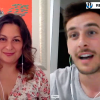

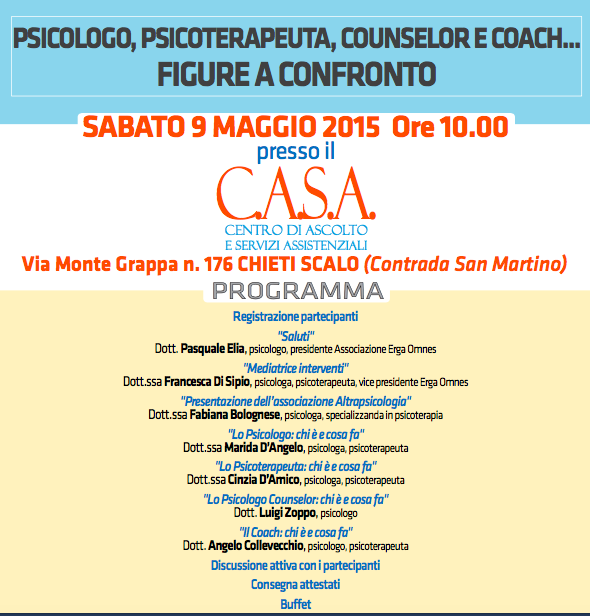
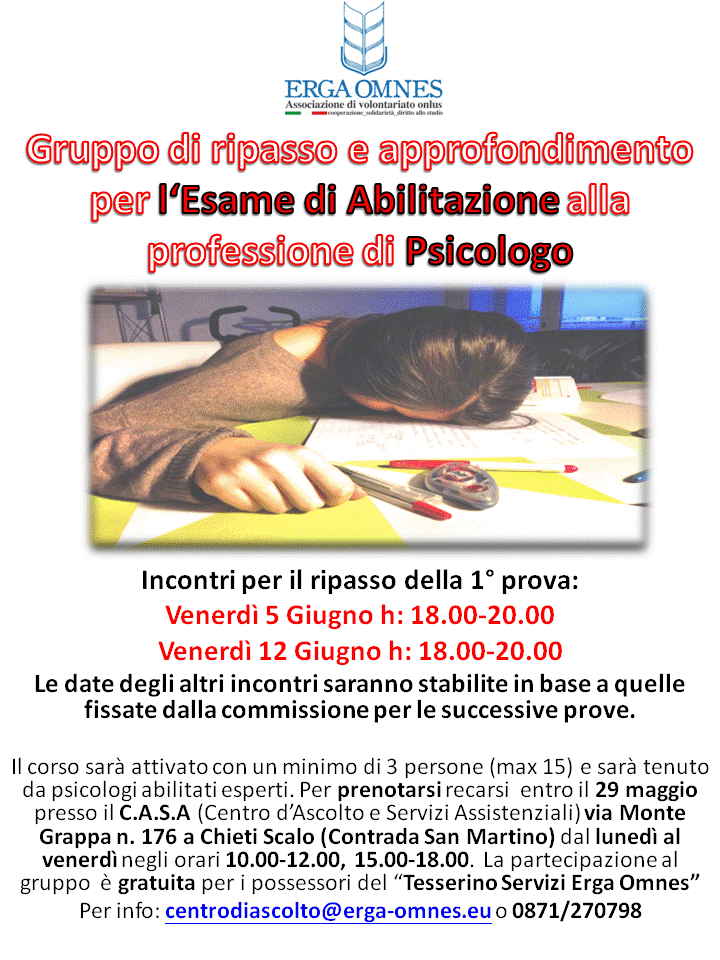

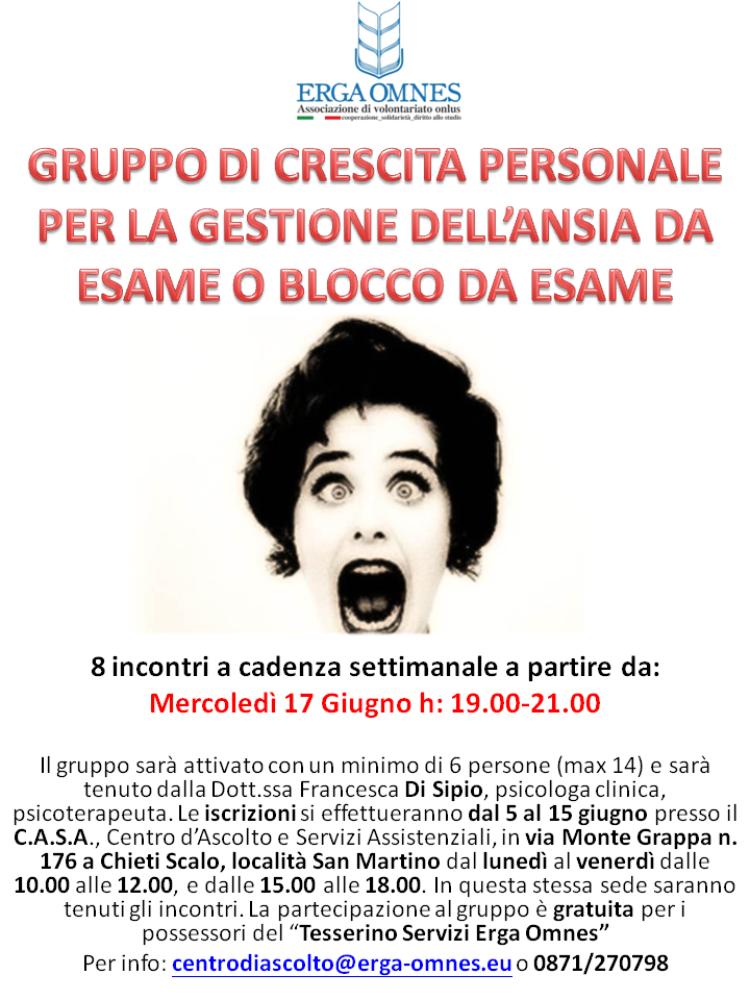
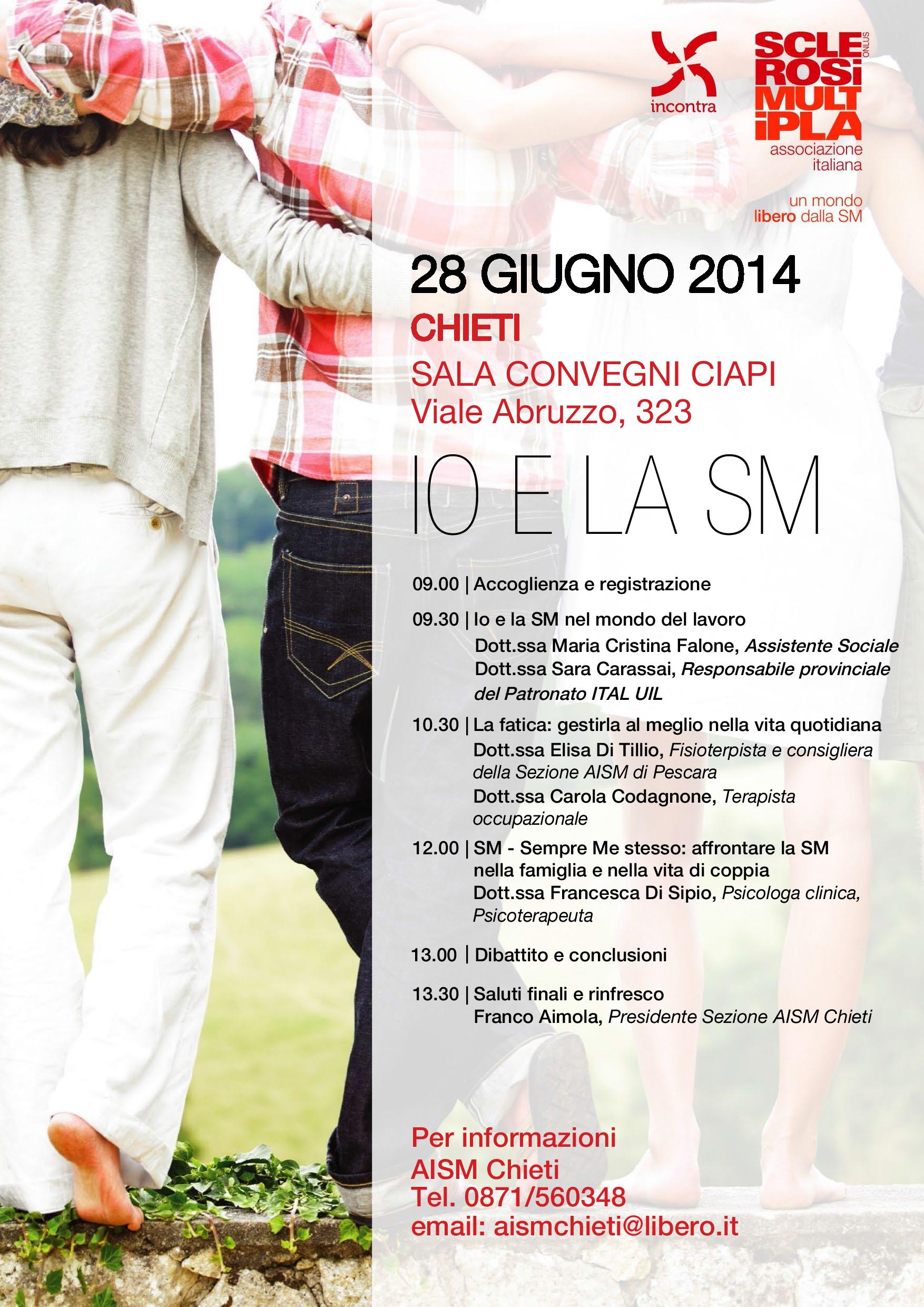
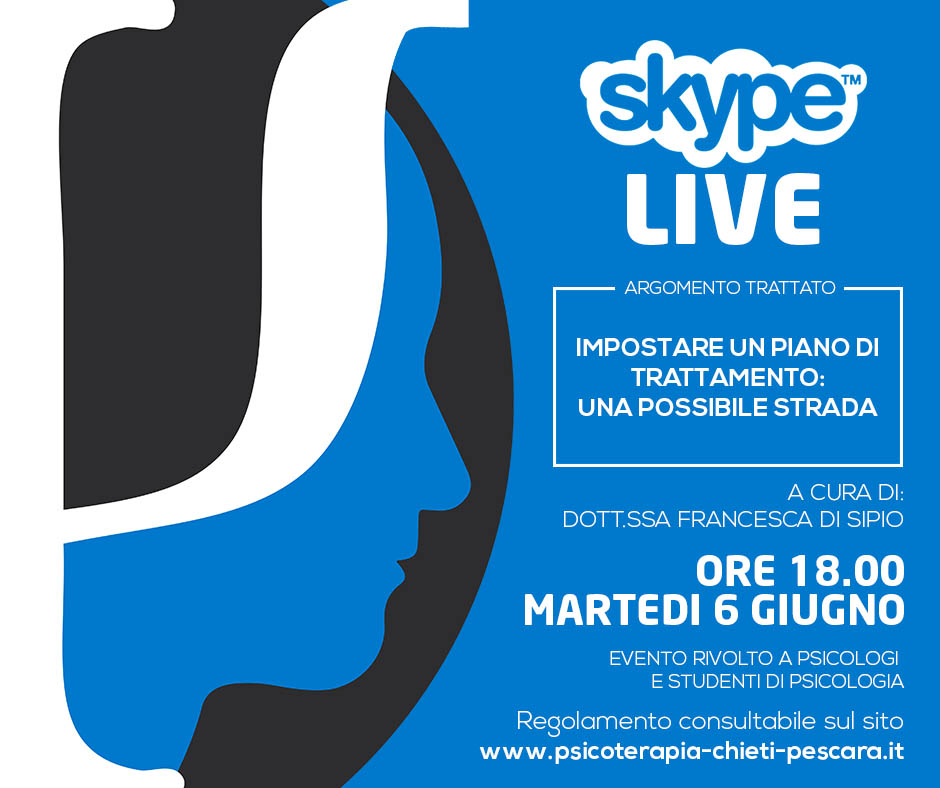

You must be logged in to post a comment Login